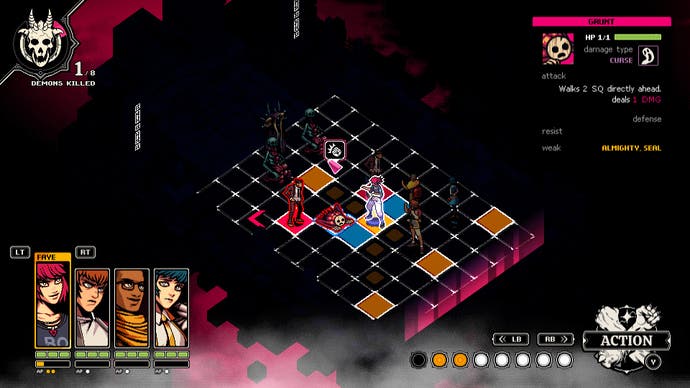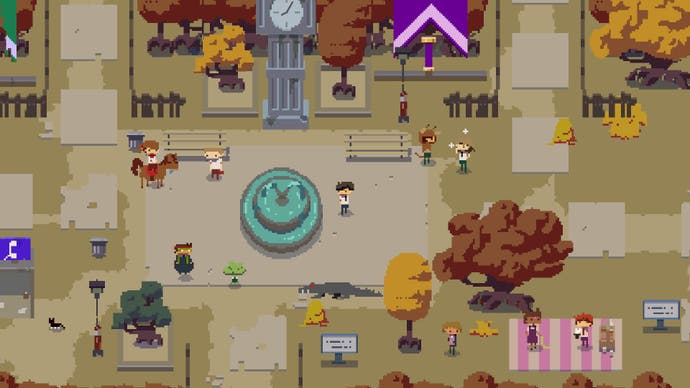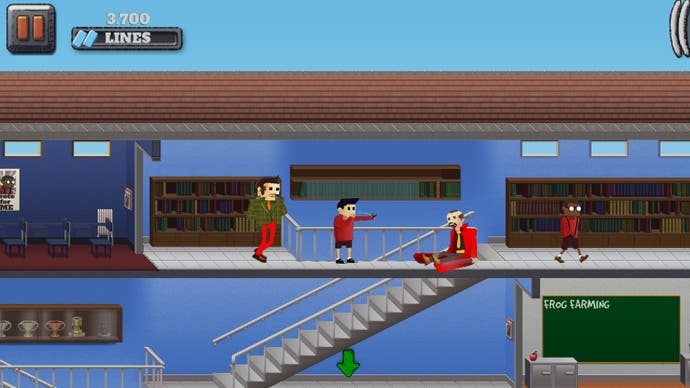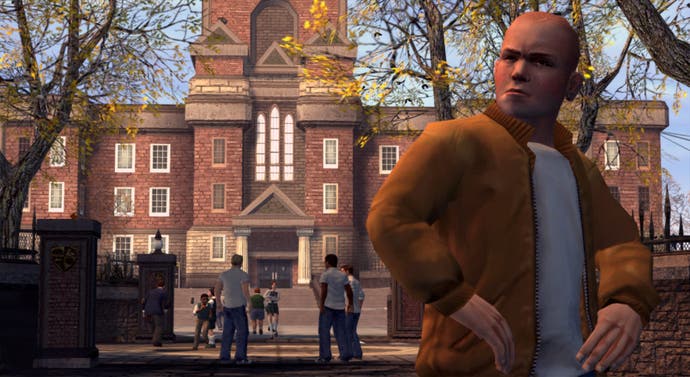Why do I let video games send me back to school?
The bell is for me and not for you.
If you're anything like me, the idea of going back to school fills you with dread. I still have nightmares about exams for which I'm unprepared and I still lay awake at night remembering embarrassing things I did when I was fifteen. Yet, show me a game that offers to send me right back there and I'll show you a game into which I'll sink a hundred hours.
What is it that makes these games so compelling? The obvious answer is that our school days - rife with drama and anxiety - make for the perfect foundation from which to build a video game.
"You've got folks telling you what to do, but they have no real authority over you," says Brandon Sheffield, creative director of Necrosoft Games. "Teachers give you assignments, there's authority to rail against, [and] there's a good reason for a diverse group of people to meet and be forced to work together toward a common goal."
Inspired by the Persona series and Italian horror films, Necrosoft's upcoming Demonschool casts the player as Faye, a demon hunter sent to an institution that combines a university and a prison. It allows for a more mature take on the formula of juggling school-work, relationships, and decking demons.
Most similar games, however, skew younger. It's easy to see why. With overblown and overwhelming emotions, teenagers can make the smallest moments appear more profound.
Annika Maar, game director of Kraken Academy!!, which dropped on Game Pass a while back, suggests, "All these big emotions you feel for the first time are a great inspiration for stories."
This focus on younger students can also make games like Demonschool and Fire Emblem: Three Houses stand out for their more collegiate vibe.
Still, you'd think setting a game in a place of learning would feel staid by now. So potent is our collective education trauma, however, that developers continue to successfully plumb its depths for relatable stories. Whether it's the pastiche of British schooling found in 1984's Skool Daze or Yasogami High School in the recently re-released Persona 4, the gaming industry has a long history of tapping into the seemingly bottomless well of youthful chaos.
"A lot in our lives changes in a very short amount of time," Maar says. "Puberty hits and all of a sudden, things that didn't matter at all before have the importance of life and death."
But that chaos doesn't just make a good foundation for video game formulae. It also provides a window into our old lives - a glimpse into a different rendition of our own experiences - that may be more important.
Interactive media is unique for its potential for tangible escapism. But as much as we can be moved by the overabundance of father-driven stories found in games like The Last of Us or thrilled at becoming a flight of stairs in Kirby and the Forgotten Land, games that throw us into avatars of our younger selves offer a more specific escape. An escape into experiences to which we can meaningfully relate, in worlds that feel both uncanny and familiar.
It's something that was important to developer Jae Yoo when creating Eternights. "Creating a world that is more colourful and enjoyable than real life is what makes games compelling for players," he says.
Like Demonschool, Eternights takes influence from, among other things, Persona and drops a group of teenagers into an apocalyptic world filled with monsters. With school out for the apocalypse, Eternights manages to tap into both the youthful drama that drives these games and the monster-shaped obstacles that are a hallmark of youth-driven media.
That so many developers include the supernatural in these games is no coincidence, either. Consider how relatable Stranger Things is. It's not because we've been harassed by creatures from another dimension. Nor is it nostalgia for the 1980s. The music may have been great (Take on Me by A-ha remains the pinnacle of music history) but the decade was defined by Cold War anxiety, teetering economies, and the AIDs crisis.

Rather, the creatures that haunt 80s and 80s-inspired horror are emblematic of those anxieties. The same is true for games like Demonschool. The game's Steam page describes its monsters as having "horrific and grotesque appearances that could be terrifying."
Yet its demonic creatures "are kind of a stand-in for the horrors that await you if you don't have money when you're finished with school," says Sheffield. They represent "the horror of capitalism, of having to get into an awful job market, of regressive family lives, and getting through that by forging your own family with close friends."
For as long as there have been human beings, there has been anxiety-driven horror. This is true whether it's vampires, first born from ignorance over decomposition and later representative of the sexual anxieties of the Victorian age, or werewolves' encapsulation of internal struggle. In the modern world, few horrors are as relatable as our teenage experiences.
"I do think that there are interesting thematic comparisons to be made between the challenges of growing up and the challenges of facing monsters," Yoo says. "Both real and imagined."

In interactive media, we have the perfect medium to not just explore these horrors in a way that isn't passive or out of reach, but to give them a form we can overcome. And this is something that games, crucially, never make us do alone.
"Ultimately," Sheffield says, "our game really centres friendship in the face of overwhelming, scary, authoritarian weirdness."
Those social links are a core part of games that use schools as settings, and of our relation to them. Compelling as being able to gaze back in time and put a face to our old demons may be, more affecting is how games allow us to once again experience the ease with which relationships formed when we were crammed into a building with hundreds of people our age.
We view our younger years as a period of singularly intense upheaval. But we never really stop changing. Those years may be more volatile and that might make them the perfect video game fodder. But even in our twenties and thirties, we're going through just as much chaotic polymorphism. We're solidifying our ideals, shifting our outlook, and invariably shedding relationships and struggling to make new ones.

Why then wouldn't we gravitate towards stories that make us feel part of a group? Towards friends that help us through the rigours laid down by gaming narratives in a way we never experienced with our own past anxieties.
It's a way to offer us, according to Yoo, "a sense of agency and empowerment that is often lacking in real-life teenage years."
That retrospective agency, even as we grow older, is important.
"I think for many people school in general is one of the last times we felt truly free," Brandon says. "All the possibilities are before us, we've maybe not yet slotted into a career, or set up specific goals, and it feels like we can do anything."
Games can't let us do anything - not yet. But they can reaffirm that sense of possibility in a static and repeatable reminder of a simpler time. One that becomes invaluable against the anxieties and pressure of simply being an adult in the modern world.
It's tempting to ascribe my own love of these games to a desire to rewrite the past. But I wonder if it's not about learning lessons: those that I learned a long time ago but forgot. These are lessons about companionship, friendship, and, more than anything, agency in the face of a world that so often takes it from us. It's not so much about the past, than how the past can inform the future.
"Rather than a way to fix what went wrong during that time," Sheffield says "[Demonschool] may be an attempt to accentuate what went right for me; and what could go right for others, if you can find your people."




